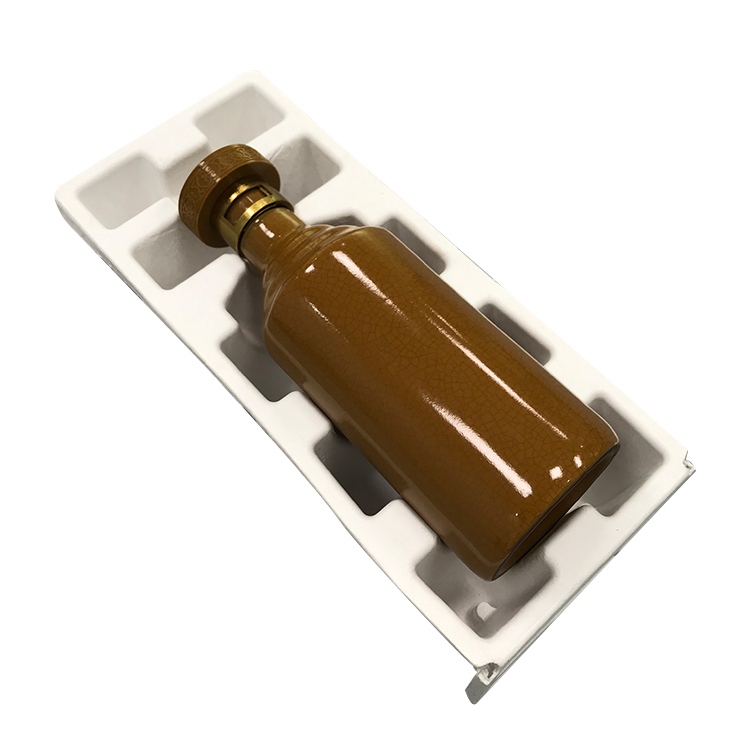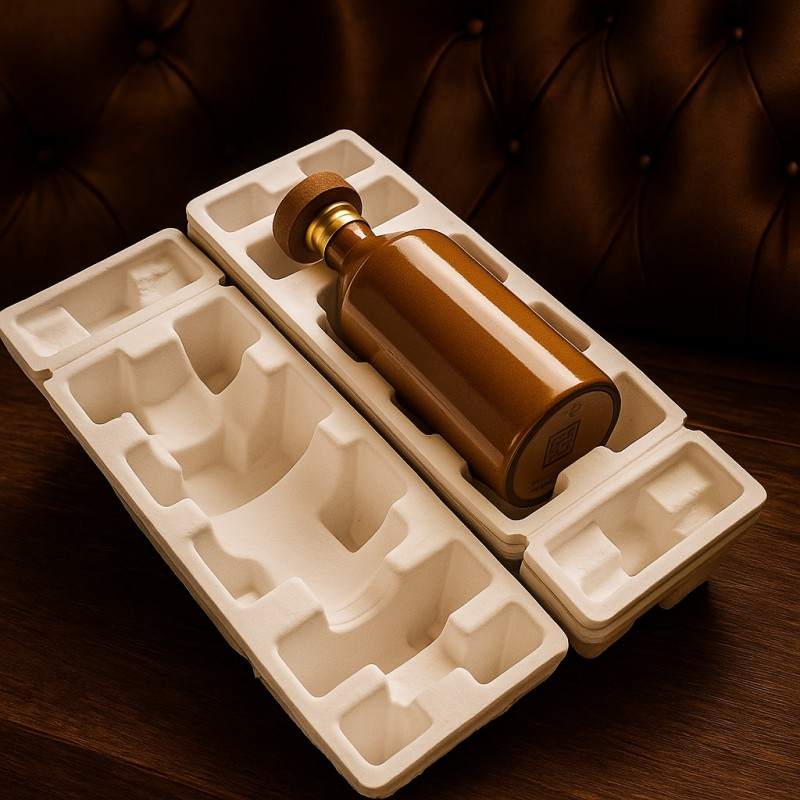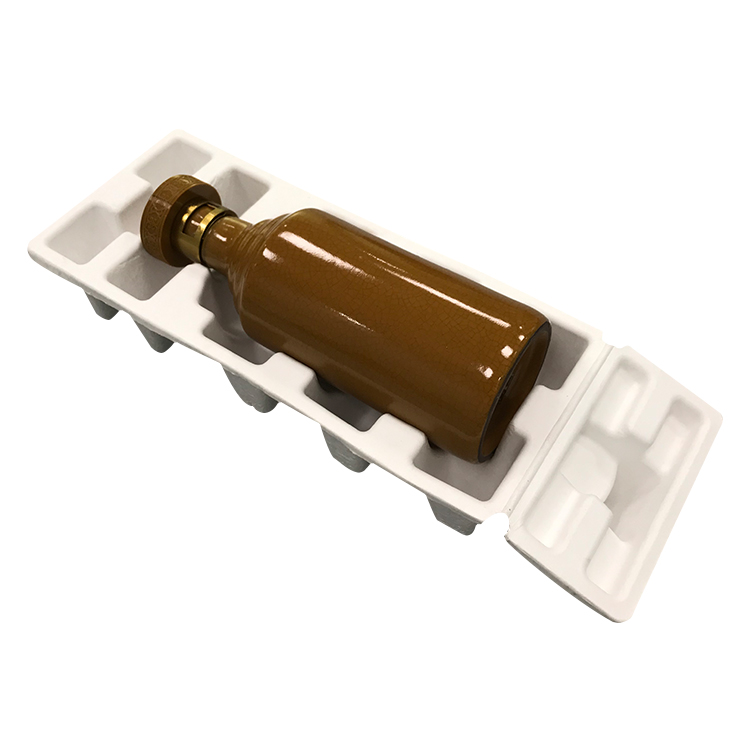In the modern wine industry, sustainability is no longer a niche concern—it has become a central factor influencing consumer choice, brand reputation, and regulatory compliance. As consumers increasingly demand environmentally responsible products, wine brands are turning to innovative packaging solutions to reduce their ecological footprint. Lvxin, a leading provider of sustainable packaging, has developed a comprehensive range of eco-friendly packaging for wine bottles, combining durability, aesthetic appeal, and environmental stewardship.
Traditional wine packaging, such as plastic wraps, foam inserts, or non-recyclable composites, poses significant environmental challenges. These materials often end up in landfills, take decades to decompose, and contribute to greenhouse gas emissions during production and disposal. Recognizing this, forward-thinking wine brands are embracing alternatives that are not only functional but also eco-conscious. Among the most popular options are biodegradable wine bottle packaging, recycled wine bottle packaging, and compostable wine bottle packaging—all of which are designed to minimize environmental impact while maintaining product protection and brand image.
Biodegradable wine bottle packaging has gained traction because it naturally decomposes over time without leaving harmful residues. Materials such as sugarcane fiber, molded pulp, or other renewable resources are commonly used to create trays, cartons, and protective inserts that safeguard wine bottles during shipping and display. These biodegradable solutions are particularly appealing to environmentally conscious consumers who expect brands to take responsibility for their packaging choices. For instance, a wine gift set packaged in biodegradable pulp trays not only reduces waste but also enhances the perceived value of the product through its eco-conscious design.

In parallel, recycled wine bottle packaging leverages post-consumer materials to create sturdy, visually appealing packaging options. By repurposing materials like recycled cardboard, paper pulp, or corrugated fiberboard, brands can significantly lower the demand for virgin resources and reduce energy consumption in manufacturing. Lvxin’s recycled packaging solutions maintain premium quality while allowing brands to communicate their commitment to circular economy principles. This approach appeals not only to environmentally aware consumers but also to retailers and distributors increasingly requiring sustainable packaging practices from suppliers. For brands aiming to achieve the highest level of sustainability, compostable wine bottle packaging offers an innovative solution. Unlike traditional biodegradable materials, compostable packaging breaks down into nutrient-rich compost under proper conditions, returning valuable organic matter to the soil. Lvxin’s compostable trays, sleeves, and cushioning inserts meet industrial composting standards, ensuring that the packaging contributes positively to environmental regeneration. Wine brands can thus align with global sustainability goals while delivering a premium unboxing experience.

Beyond environmental considerations, adopting eco-friendly packaging for wine bottles has tangible operational and marketing advantages. Sustainable materials, such as biodegradable and recycled pulp, are often lighter than conventional options, reducing shipping costs and transportation emissions. Additionally, consumers increasingly associate sustainable packaging with brand quality and corporate responsibility. A wine bottle packaged in biodegradable wine bottle packaging or compostable wine bottle packaging signals that the brand values not only its products but also the planet, strengthening consumer loyalty and encouraging repeat purchases.
Lvxin emphasizes that sustainability and aesthetics do not need to be mutually exclusive. Modern eco-friendly packaging for wine bottles can incorporate elegant design elements, such as embossed logos, natural textures, and modular layouts, which enhance the product’s visual appeal while keeping environmental impact low. Brands can use these features strategically to differentiate limited-edition bottles, seasonal collections, or premium gift sets. The careful design of cosmetic-quality biodegradable wine bottle packaging ensures that the wine is protected during transport and storage, while also elevating the unboxing experience for consumers.
Consumer behavior further reinforces the importance of sustainable packaging. Studies show that a growing segment of wine buyers actively seeks brands that prioritize eco-conscious practices. By using recycled wine bottle packaging or compostable wine bottle packaging, brands can communicate their environmental values transparently. Labels, inserts, or marketing campaigns that highlight sustainable packaging choices help educate consumers, strengthen brand identity, and create positive associations that extend beyond the product itself.

From a strategic perspective, sustainable packaging is increasingly becoming a regulatory and market requirement. Many countries have introduced incentives or mandates for environmentally friendly materials, including biodegradable and compostable options. Working with experienced suppliers like Lvxin allows wine brands to navigate these requirements while implementing packaging solutions that meet both legal standards and consumer expectations. This ensures that products are compliant, market-ready, and appealing to retailers and end-users alike.
Lvxin’s approach to sustainable wine packaging combines material expertise, design innovation, and supply chain support. Their team collaborates with brands to select the most appropriate combination of biodegradable wine bottle packaging, recycled wine bottle packaging, and compostable wine bottle packaging based on product dimensions, shipment requirements, and aesthetic goals. From initial concept to final delivery, Lvxin ensures that wine bottles are protected, packaging is sustainable, and the brand message is consistently reinforced.
Adopting eco-friendly packaging also provides brands with marketing leverage. Promoting the use of eco-friendly packaging for wine bottles can differentiate products in a crowded market, attracting environmentally conscious consumers and media attention. Stories around biodegradable or compostable materials can be integrated into social media, product labels, and e-commerce listings, giving consumers a tangible reason to prefer one brand over another. This dual benefit—protecting the environment while enhancing brand perception—makes sustainable packaging a smart long-term investment.

In conclusion, reducing environmental impact through eco-friendly packaging for wine bottles is no longer optional for modern wine brands. By integrating biodegradable wine bottle packaging, recycled wine bottle packaging, and compostable wine bottle packaging, brands can achieve a balance of environmental responsibility, operational efficiency, and premium product presentation. With Lvxin’s expertise, wine companies can confidently transition to sustainable packaging solutions that not only protect the planet but also elevate brand value, foster consumer loyalty, and position themselves as leaders in the growing market for environmentally conscious products.

